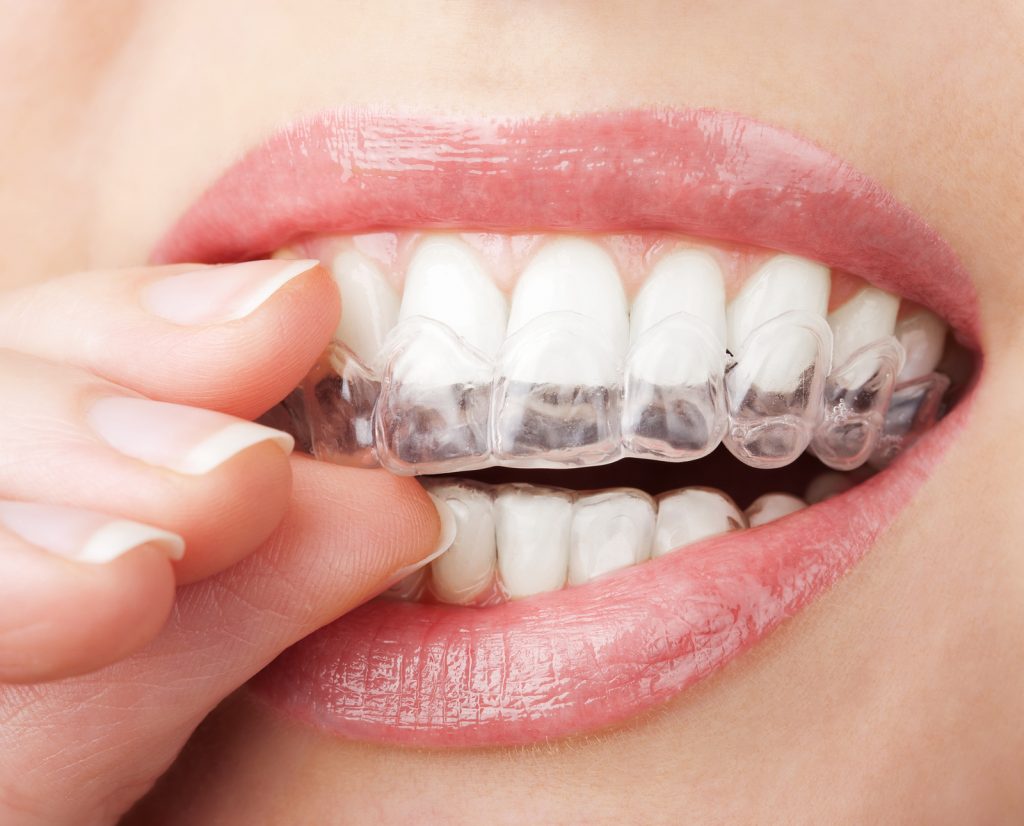Sleep bruxism or grinding teeth in sleep is a condition that can result in tooth damage and disrupted sleep. Grinding teeth in sleep has been associated with several factors like anxiety, sleep apnea, daytime stress, and even caffeine intake.
Occasional teeth clenching and teeth grinding is normal and won’t cause any significant damage. However, severe cases of bruxism will not only harm the teeth, it can also lead to other oral health issues.
Oftentimes, people are not aware they grind their teeth in their sleep. The bed partners who hear the clenching and grinding at night are always the first to notice. Parents may also notice it in their sleeping children.
Causes
Teeth grinding can be attributed to psychological (personality traits), biological (genetics), and external (alcohol, caffeine, smoking, etc.) factors. Fortunately, your dentist can assess the influence of any of the aforementioned factors.
While teeth grinding is also common among children, most outgrow the condition once they reach their teens.
Symptoms
Some of the most prevalent signs and symptoms of teeth grinding include:
- Grinding sounds during sleep
- Ear pain
- Jaw pain
- Headache
- Aching teeth
- Face stiffness
- Temperature sensitive teeth
- Chipped or cracked tooth enamel
- Raised tissue on the inside of the cheek (secondary to biting)
- Loose teeth
- Tooth indentations (on the tongue)

Complications
When left unattended, teeth grinding can lead to other complications. Some of the health problems and discomfort that can arise from teeth grinding include:
- Teeth wear and tear
- Cracked tooth enamel
- Broken teeth
- Broken restorations (fillings, dental crowns, bridge, etc.)
- Sore jaw muscles
- Tooth loss
- Jaw muscle enlargement
- Limited jaw movement
- Jaw joint pain
- Temporomandibular joint strain
- Tooth sensitivity
Strategies
If you have severe bruxism, it is recommended that you get in touch with your dentist right away so you can be properly assessed and given proper treatment before any significant damage to the teeth occurs.
If teeth grinding is mild, the following strategies might help:
Wearing a night guard. Your dentist can create a bespoke night guard which is worn over the top teeth while sleeping. It can be made of acrylic or plastic. While it won’t stop the grinding, it can protect the teeth.
Exercising. Regardless if you’ll just go for a little stroll or a major sweat session, exercising has been known effective in alleviating stress, one of the common causes of teeth grinding.
Taking a warm bath before sleeping. Warm water has been known to help relax the jaw muscles before bedtime. A heating pad may also be used and applied on the jaw.
Relaxing before bedtime. Anxiety is also considered another factor that can cause grinding. With that in mind, it is advisable to relieve stress and unwind especially after a long hard day. Unwinding before bedtime can also help minimise, if not prevent, possible teeth grinding.
Seeking professional help. Those with severe anxiety may also suffer from teeth grinding. That being said, it is advisable to seek professional help so proper treatment can be provided.
